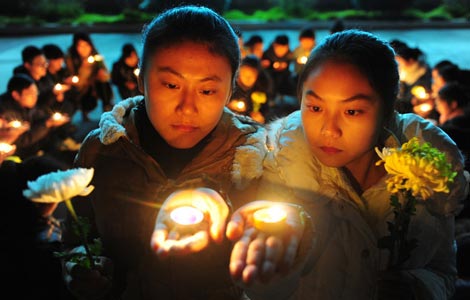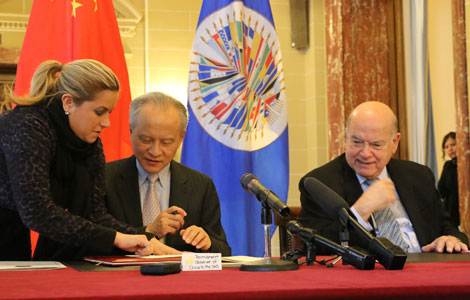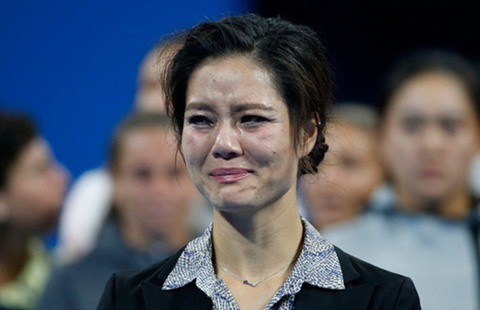UN climate change summit faces deadlock
Updated: 2014-12-14 06:08
By Lan Lan in Lima, Peru(China Daily USA)
|
||||||||
The ongoing United Nations climate summit in Lima, which has passed its official closure deadline, is facing a "deadlock", said a senior official of the Chinese delegation.
The latest draft text proposed by the co-chairs before dawn Saturday is "unbalanced", said Liu Zhenmin, vice-foreign minister and deputy head of the Chinese delegation to the United Nation climate change conference in Lima.
"The text should be amended to broadly reflect the concerns of developing countries," said Liu, adding that it failed to reflect the principle of common but differentiated responsibilities and differentiation between developing and developed countries.
Only a few hours left for developing countries and developed countries to bridge the divergence in Lima if the 194 participating countries want to close the meeting on Saturday.
Developing countries said the latest draft text failed to reflect their core concerns such as the principle of common but differentiated responsibilities, balance of mitigation, and adaptation, loss and damage.
Malaysia delegation said the text shouldn't be mitigation centric. All elements, including adaption, finance, technology transfer, capacity building, should be included, said the delegation. The assessment of intended nationally determined contributions (INDC) should be done after 2015, it added. Calling for a balanced approach, India said the INDCs should be full scope. "Let's not make the poor to pay," said Indian delegation.
Tuvalu, a low-lying island country that's threatened by climate change, said lost and damage was missing from the text. It's a crucial issue for the world's poorest people, it said. "There is overwhelming message from the less developed countries that we need to have that in the text," said a Tuvaluan representative.
"Nobody wants to go back home empty handed but we would rather go back without a document that puts more liabilities on the vulnerable", said a Pakistani delegate.
Most developed countries, including the United States, the European Union, Australia, New Zealand, Japan, and Russia, accepted the current draft text.
"We are really concerned that the current draft lacks specific actions to address pre-2020 emissions necessary to limit warming to 1.5-2 degrees C," said Tasneem Essop, a climate expert with WWF South Africa.
"It seems that governments in Lima are happy to leave hard decisions on climate change to the governments of tomorrow. This is a recipe for a climate nightmare," Essop added.
lanlan@chinadaily.com.cn
Most Viewed
Editor's Picks

|

|

|

|

|

|
Today's Top News
UN climate change summit faces deadlock
Xi attends China's first memorial ceremony
Three pilot trade zones proposed
US big-data company expands into China
Baidu expected to take stake in Uber
Coal to remain vital to China despite climate pact with US
China: Climate focus should be on Paris deal
Climate change agenda marches on, despite its obstacles
US Weekly

|

|















